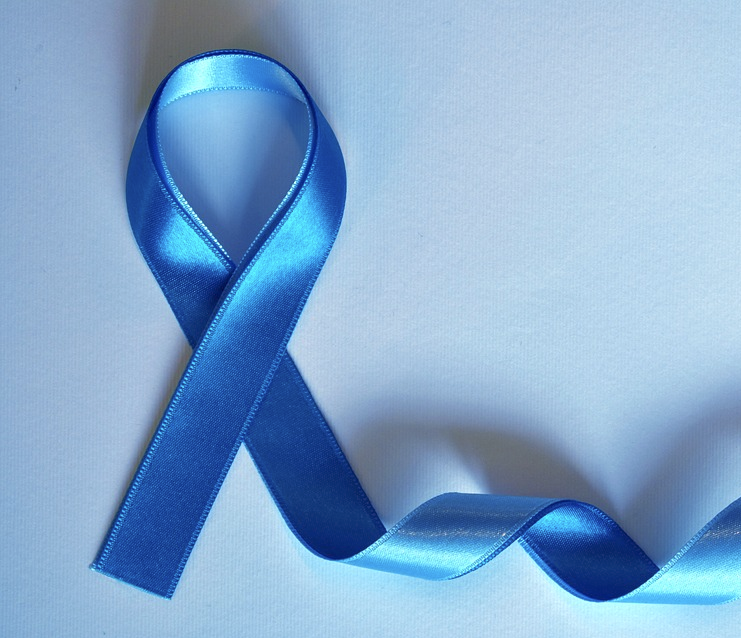What is Prostate Cancer?
- Prostate cancer begins when cells in the prostate gland (the gland below the bladder and in front of the rectum that produces seminal fluid in men) grow out of control.
- About 1 in 9 men will be diagnosed with prostate cancer during his lifetime.
- Other than skin cancer, prostate cancer is the most common cancer in American men.
- It occurs mainly in older men 65 and older and it is rare before age 40.
What are the Symptoms of Prostate cancer?
Early prostate cancer usually does not cause any symptoms, and is usually found early through screening. However as the cancer progresses into an advanced stage it can cause:
-
Needing to urinate frequently, especially at night
-
Difficulty starting urination or holding back urine
-
Blood in the urine or semen
-
Weak or interrupted flow of urine
-
Burning or painful urination
-
Difficulty getting an erection (erectile dysfunction)
-
Painful ejaculation
-
Pain or stiffness in the lower back, hips, chest, or thighs
-
Pain or pressure in the rectum
Contact our office today if you believe you may be at risk and/or are experiencing some of the symptoms listed above. Our team of doctors will determine the course of treatment that is best suited for you.



What are the Risk Factors and Causes for Prostate Cancer?
-
Age: It is rare for men under 40 to have prostate cancer, but the risk of prostate cancer rises rapidly after age 50. About 6 in 10 cases of prostate cancer are found in men older than 65.
-
Genetic factors have been seen in families affected by the disease. Molecular research has recently found that inherited DNA changes in certain genes made men more likely to develop prostate cancer. These genetic mutations appeared to be responsible for about 10% of the cause.
-
Race: African-American men have twice the risk of developing prostate cancer than Caucasian men. The chances are less in Caucasian, Hispanic, and Indian men.
-
Family History: Prostate cancer seems to run in some families however most men who develop it do not have a family history of it. Having a father or brother with prostate cancer more than doubles a man’s risk of developing this disease and the risk increases if there are several other family members with prostate cancer.
-
Diet: Men who eat a lot of dairy products appear to have a slightly higher chance of getting prostate cancer.
-
Insulin-like growth factor-1 (IGF1), when increased, men are more prone to develop prostate cancer
-
Other Risks Include: There is some evidence to possibly suggest obesity, smoking, chemical exposures found exposed to fire fighters and vietnam veterans, prostatitis, vasectomies, and STDs potentially increase the risk of prostate cancer but still need more research.
Q & A
A: An enlarged prostate can cause blood in the urine because the enlarged prostate can press on the urethra and cause bladder irritation.
A: Prostate cancer can cause you to need to urinate much more often and frequently, especially at night.
A: Milk and dairy products are linked to an increased risk of prostate cancer so cutting down or avoiding milk intake could help decrease the risk.
How is Prostate Cancer Treated?
Prostate cancer treatment depends on several factors such as the cancer type, the tumors spread, and the overall stage of the tumor.
In some centers for men with low risk prostate cancer, their treatment does not start right away. Instead, what is recommended is close observation and active surveillance by regular checkups, blood tests, rectal exams and possible biopsies to monitor the progression of the cancer. If there is a progression of the tumor, the patient may go for prostate cancer treatment such as:
Surgery: May involve the removal of the prostate glands surrounding tissue and a few lymph nodes where a prostatectomy can be performed by a robotic-assisted surgery.
Radiation therapy: Where high-power radiation is used to kill cancer cells.
Hormone therapy: Stops your body from producing testosterone, male hormones. Prostate cancer cells have a high appetite for testosterone to help thin growth. Cutting the supply of testosterone may cause cancer cells to die or tomorrow more slowly.
At HEMATOLOGY & ONCOLOGY CARE we customize your Prostate Cancer care so you can receive the most advanced, least invasive treatment with the fewest side effects. Planning of the treatment involves an interdisciplinary team of medical professionals. This usually implies a meeting of different specialists we have at HOC, called a multidisciplinary opinion. In this meeting, the planning of treatment will be discussed based on the relevant information summarized above.


